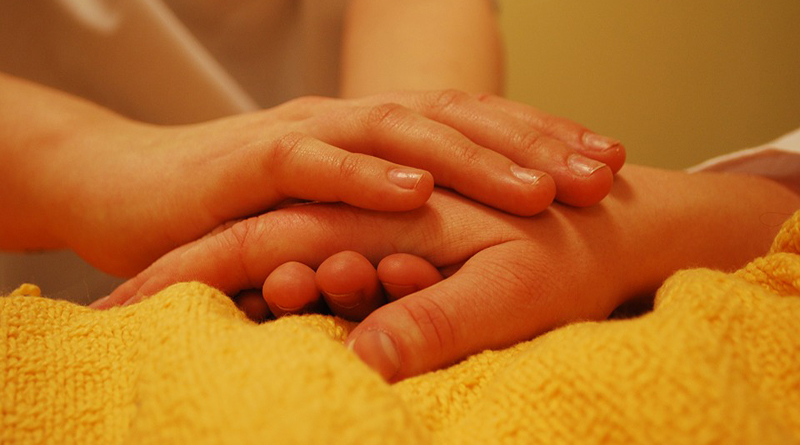By Chris MacLellan
For every caregiver, the stark reality is this:
there is always a beginning and an end to the caregiving journey, and in most cases, we are not prepared for either of these life events. I believe there are four emotions one can experience when caregiving ends.
Relief:
Caregiving is over. Those long sleepless nights, sleeping with one eye open, are gone and there is relief in knowing the one you loved (cared for) is now pain-free.
Sadness:
The life you once knew has now forever changed: The undeniable reality something powerful has happened, forever transforming two (or more) lives.
Guilt:
Those “what if” or “if I could have done this differently” moments leaving us to wonder if we did the right thing. Then comes the greatest guilt—when you realize you have to continue on with your life without the one you love (and cared for). We want to avoid this emotion as much as possible, it is essential to reach out for help when guilt becomes burdensome.
Acceptance:
When you wake up one morning and tell yourself, “Job Well Done” and you find the strength to live in the present. Acceptance is the most elusive emotion to grasp and experience when caregiving ends, yet I find this to be the most important one of all. Acceptance frees you from what binds you. Take heed in acceptance!
Just like our caregiving journey’s are different, so will the the grief process, there are no two alike.
We all experience loss in our life, yet no one can tell us exactly how to deal with loss. Loss is so personal and so real. I have read many different theories on the grief process. One theory said 30 seconds of grief is all you need. Of course, there are other studies that suggest stages of three, six, or 12 months for grief. Probably the most famous theory on grief, and the one used by many professionals, was created by Elizabeth Kőbler-Ross’ five stages of grief: denial, anger, bargaining, depression and acceptance.42 Other theorists and therapists will add one or two more steps to Kőbler-Ross’ process. From my experience, I really don’t think one particular theory on grief works. Grief and how we cope with loss will be different for everyone. Just as our caregiving journeys are different, so is the grief process. I’ll say again, do not be afraid to reach out for help when your grief becomes burdensome.
There is one aspect of grief that I think all of us will experience in one way or another. We stop living! Once you come to the realization that you have stopped living, then you realize the time has come to move on and live your life in the present, with health, happiness and confidence. While I am missing the one I love, I need (want) to create a new life to love. Richard would want me to create a new life to love. This does not mean I am going out to find a new love, this simply means I am learning to live my life differently. Embracing acceptance has helped me to start the process while bringing me out of my isolation.
People have asked me if I will love again or be loved again. Maybe so, but the love will be different: you can never recreate what you had with someone else. When you do, you set yourself up for failure. However, in order to start the healing process, you have to start to create a new life that you love. Like a plant that needs to be watered to regain blooms, we too, in our grief process, need to be watered so we can bloom again. There is no timetable for a new bloom, but without the proper nurturing and care, our soil will become dry and we start to wither away. The best words of advice I was given after Richard made his life transition have been, “the pain of losing him will get softer, but the love you shared will always be strong.” I think of those words often and have found quite a bit of comfort in this sage advice. I hope you do as well! So, that old cliché is true: “time heals all wounds, but wounds heal in their own time and in your time, it does get better.”
Chris MacLellan is affectionately known as “The Bow Tie Guy” in many caregiving circles. Faced with his partner’s diagnosis of esophageal cancer in 2011, Chris started a caregiving blog entitled, “The Purple Jacket” and is an ardent advocate for caregivers and their carees through his blog and radio show, “Healing Ties™”. Chris’ Master’s Degree thesis entitled, “Spiral of Silence: Caregiving, Stress and its Impact in the Workplace” was accepted by the faculty at Gonzaga University, where Chris earned a Master’s degree in Leadership and Communication in 2016. Chris is the founder of the Whole Care Network and the South Florida Caregiving Coalition. The author of “What’s The Deal With Caregiving?” Chris is a Certified Senior Advisor (CSA), Certified Caregiving Consultant (CCC). and a Certified Caregiving Educator (CCE). Chris presents regularly on topics that impact family caregivers, LGBT seniors and life after Caregiving ends.





